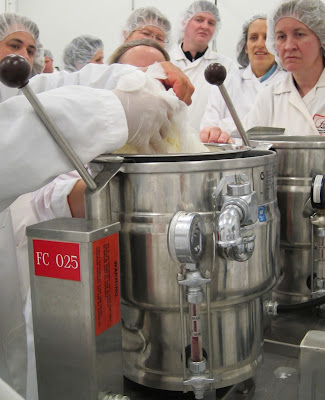Dead Aid: Why aid is not working and how there is a better way for Africa
 We Meant Well
We Meant WellMore than US $300 billion of foreign aid has been sent to Africa since 1970, and yet sub-Saharan Africa remains the poorest region in the world. And it’s not improving. Between 1981 and 2002, the number of Africans living in poverty almost doubled.
Dambisa Moyo was born and raised in Zambia, obtaining degrees from both Oxford and Harvard universities. She has worked for the World Bank and Goldman Sachs. Her 2009 book, Dead Aid: Why aid is not working and how there is a better way for Africa, examines why aid isn’t working and proposes alternative ways for African countries to improve their economic and social infrastructure.
Outlined below is a summary of her key ideas.
Aid Is Not Working
African governments view aid as a permanent, ongoing source of funding. They may get their fingers slapped for misuse of funds, but the money keeps flowing so there is no incentive to develop alternate sources of economic support. Moyo demonstrates that aid does not promote investment, nor does it foster entrepreneurs and the development of a middle class. Aid money is concentrated at the government level so it doesn’t trickle down to the population as a whole where it could be put to work in building businesses or improving living conditions. Instead, it promotes and supports corrupt governments. It may even promote conflict which is born out of competition for control of resources.
Aid can work. It worked in Europe after the Second World War, and it has worked in Ireland. But in these cases, the aid was for a limited time only, to countries which were not completely dependent on aid, and to countries with established legal and civil institutions.
So why do we continue to provide aid? And what are the alternatives?
A World Without Aid
African countries do need money. They do need to establish economic structures that will move Africa out of poverty. Moyo outlines a variety of financial tools that can be used to help. These include: international bonds, private venture capital, direct investment, and increased trade. All of these options would reduce corruption as the lenders would demand a return on investment. She looks at ways that countries could work together by applying jointly for bonds or developing integrated economic zones similar to the Association of Southeast Asian Nations. Moyo focuses attention on the increasing investment by China and its potential implications. She also recommends various methods, such as micro finance (including Kiva), for promoting small business and entrepreneurs.
Making Development Happen
Moyo believes that developed nations must stop pretending that foreign aid will generate sustained economic growth and turn off the flow of money.
“What would happen? Would many more millions in Africa die from poverty and hunger? Probably not – the reality is that Africa’s poverty-stricken don’t see the aid flows anyway. Would there be more wars, more coups, more despots? Doubtful – without aid, you are taking away a big incentive for conflict. . . . What do you think Africans would do if aid were stopped, simply carry on as usual? Too many African countries have already hit rock bottom – ungoverned, poverty-stricken, and lagging further and further behind the rest of the world each day; there is nowhere further down to go. . . . Africa’s development impasse demands a new level of consciousness, a greater degree of innovation, and a generous dose of honesty about what works and what does not as far as development is concerned. And one thing is for sure, depending on aid has not worked. Make the cycle stop.”
It’s a powerful message backed up by solid proposals for replacing aid with internal economic growth and development. I was born in Africa, and I have a keen interest in seeing Africa thrive – as well as a heavy dose of guilt for my colonial heritage. Moyo’s book helps to explain and confront the issues constructively.
Postscript
We need to ensure that alternate economic development tools benefit Africans. I was disturbed to read in The Economist about the large chunks of land that are being purchased in Africa to grow food to export to rich nations that have a shortage of arable land.
“. . . a group of Saudi investors is spending $100m to raise wheat, barley and rice on land leased to them by the government [of Ethiopia.] The investors are exempt from tax in the first few years and may export the entire crop back home. Meanwhile, the World Food Programme (WFP) is spending almost the same amount as the investors ($116m) providing 230,000 tonnes of food aid between 2007 and 2011 to the 4.6m Ethiopians it thinks are threatened by hunger and malnutrition.”
Is it morally or intellectually justifiable for Saudi Arabia to lease land in Ethiopia to grow food for export when the local population is dying from starvation? How do African countries ensure that they benefit through education, employment, resources when they share their land with other nations? How do we ensure that policies and practices are tested to ensure that they benefit all nations, not simply powerful nations? How do we prevent greed and selfishness – on any level – personal, national, or global?




Comments